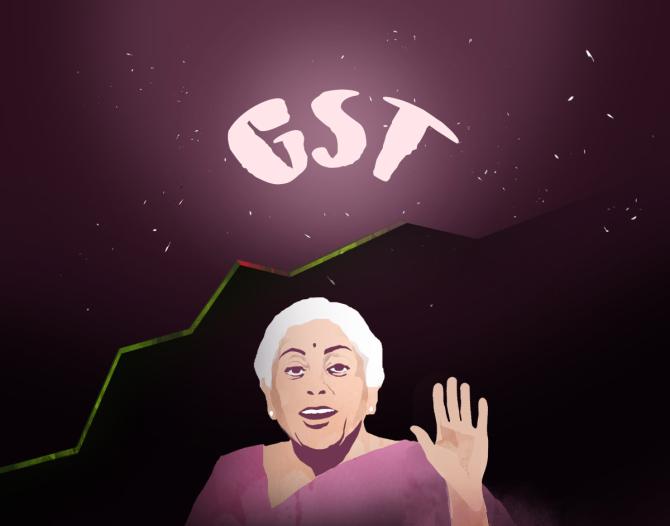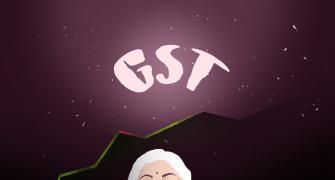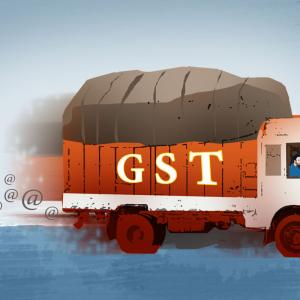The life insurance industry does not have a good track record when it comes to passing on tax benefits to policyholders, points out Harsh Roongta.

In the early 2000s, it was widely anticipated that the government would reduce the excise duty on cars in the upcoming Budget.
As a result, demand for cars was tepid, with buyers choosing to wait for the Budget announcement.
I was somewhat surprised that, in this environment, auto companies chose to raise prices.
Then the penny dropped. The total price would inevitably drop once the duty cut was announced.
The pre-emptive increase in price allowed auto companies to appropriate part of the duty cut that should rightfully have benefitted car buyers.
I recalled this incident while reading about calls to withdraw the goods and services tax (GST) on life and medical insurance premiums as it burdens senior citizens.
The demand is being justified on the grounds that taxing insurance premiums is akin to levying a 'tax on the uncertainties of life'.
On the surface, it is difficult to disagree with this demand.
However, the life insurance industry does not have a good track record when it comes to passing on tax benefits to policyholders.
For many years, the maturity proceeds of all life insurance policies were completely tax-free.
But this did not result in policyholders receiving a better deal.
Take, for example, the High Investment with Low Insurance policy (let's coin the acronym HILI).
Despite the tax benefits, returns for HILI policyholders remain low, while life insurance companies and insurance agents enjoy remarkably high margins.
Recognising this, the tax benefits have slowly been whittled down.
However, even now, these tax subsidies continue to apply to HILI premiums up to Rs 7.5 lakh per year (Rs 2.5 lakh on Ulips, Rs 5 lakh on non-Ulip plans).
These HILI policies continue to be highly detrimental to the policyholder's financial health.
Until 2000, when competition was introduced, Life Insurance Corporation (LIC) did not offer a term insurance policy.
Term policies pay the policy value to the policyholder's family upon their death and have no maturity value, making them very affordable.
So much for covering the 'uncertainties of life'.
While the availability of term policies has improved, it remains challenging to obtain one if the applicant has a pre-existing condition, such as diabetes or high blood pressure.
Even when available, it often comes at an excessive cost.
In a country known as the diabetes capital of the world, the lack of affordable term insurance for such individuals is a serious issue.
The health insurance industry has a different set of problems.
It does not have a good reputation for settling claims when they arise.
Another significant issue is the availability of health insurance, particularly for senior citizens, in whose name the GST withdrawal is being sought.
Truth be told, Indian taxpayers have been subsidising the life insurance industry and life insurance agents for far too long.
At the same time, withdrawing GST on pure term and health insurance makes these policies more affordable.
Therefore, it makes sense to do so. However, any such tax relief must be directed to reach the right beneficiaries.
It should be restricted to pre-packaged term life and medical insurance policies.
These policies should be required to be issued even to those with impaired health and to senior citizens.
Such policies are called compulsory issue policies.
They may carry a higher premium to compensate for the increased risk.
The withdrawal of GST on such policies will reduce their overall costs and make them comparable to standard policies.
This limited GST relief can be offset by abolishing the unjustified tax subsidy on the maturity amounts of HILI policies.
If this is ensured, the industry cannot misuse the tax breaks by pre-emptively raising prices on standard insurance products.
If the GST withdrawal is tightly targeted, it will be a step towards citizen-funded universal health care, and should be encouraged.
Harsh Roongta heads Fee-Only Investment Advisors LLP, a Sebi-registered investment advisor.
Feature Presentation: Aslam Hunani/Rediff.com









